Not everyone can afford to go out with high-priced guides, or stay at fancy fly fishing lodges, or attend top fly fishing schools. At the same time, most folks I know lack the disposable income to buy $1,000 fly rods, $800 waders and $300 sunglasses. But that doesn’t mean fly fishers with more modest financial resources can’t become stellar anglers. Here are a few suggestions that any fly fisher, regardless of his or her economic status, should be able to utilize.
Attitude
Most of us are not quite as talented or skilled as we think we are. Which is okay. As long as we focus on learning and growing, we can continue to improve. The folks who struggle the most are the ones who believe that they already know it all and don’t need to work on their skills or learn more about the sport. Please don’t make that mistake. Embrace the idea that there’s always room for you to improve.
Personal Growth
Don’t put yourself on someone else’s schedule. Learn the sport at your own pace. If “slow” feels right, then take your time and focus on incremental improvement. And if you want to go faster, then embrace that reality and push yourself. In case it isn’t obvious, you should be intentional. Set your own goals and stick to your own schedule. Don’t let anyone push you to slow down or, conversely, to go quicker than you prefer.
Gear
If you already own several fast-action trout rods, either sell them or give them to anglers you don’t like. Then buy a new 9’ 4 weight Redington Classic Trout rod (for less than $200) and use it constantly. It’s a great rod to fish with, and a wonderful rod to practice with, and it will help you become a better angler and caster. Oh, and make sure to match it with an appropriately-sized reel — you might consider an Orvis Battenkill — and a decent DT-4-F fly line. You’ll end up with a great, inexpensive setup that will handle dries, nymphs, wets and small streamers. You’ll also feel the rod load and unload when you cast, which is something that not nearly enough anglers experience in this day and age.
(The 9’ 5 weight Classic Trout will also work, but most folks will benefit more from fishing, and practicing with, the 4 weight.)
Casting
Learn what a good cast looks like. Then learn what a fundamentally-sound casting stroke looks like. Then do what you can to make sure that your casting stroke looks like that ideal, fundamentally-sound casting stroke. Can I point you towards a video of a fundamentally-sound casting stroke? I can indeed. Click here and take a look.
In addition to modeling a beautiful casting stroke, expert anglerJohn Juracek says: “Take the time to improve your casting. Not just because you’ll catch more fish or bigger fish (you’ll do both), but because the better you get, the more fun you can have in a wider range of conditions.”
Blowback
A fair number of the anglers who read this piece will respond to my casting advice with some variation of “my cast might not be pretty, but I still catch plenty of fish” — followed, no doubt, by a fair amount of creative profanity for those of us with the temerity to suggest that better casting leads to more enjoyment and more success on the water. If you find yourself in this particular group, you might want to go back and revisit the earlier section on “attitude.”
Skepticism
Be skeptical of the fly fishing information you discover in the dark corners of the internet. A lot of what you run across will be either unhelpful or counter-productive. An old teacher of mine used to say something along the lines of: “If you believe what I tell you, then you’re an idiot. Take what I’m offering, put it to the test, keep what works and throw away the rest.” I’d suggest that you take his advice to heart. There are any number of folks offering fly fishing advice on YouTube, and elsewhere, who have no clue what they’re talking about. Sadly, there’s no easy way for inexperienced anglers to differentiate the folks sharing solid advice from the ones who will lead you astray. Caveat emptor, my friends.
Tying
Learn to tie flies. It requires a bit of an initial investment, but the benefits so far outweigh the negatives that it’s a no-brainer for anyone who wants to improve their angling. Where can you find someone to guide you through this process? There’s a gentleman by the name of Tim Flagler who has a wealth of fly tying experience and knowledge you can access by clicking here.
Local
Fish close to home. The more time you spend on the water, the better … and it’s much easier to fish the local river, or the creek that runs past the edge of town, than it is to drive half way across the country to experience a famous trout fishing destination. There’s nothing wrong with well-known rivers, of course, but there are serious advantages to becoming more familiar with your home waters.
Dry Flies
Fish dry flies even if you don’t want to fish dry flies. Why? Because you’ll have the opportunity to see everything good, and everything bad, about each cast and each drift. Then you can take what you learn to your nymphing, and your streamer fishing, and your soft hackle game. Dry flies will teach you a ton about what you’re doing right and what you’re doing wrong — and that’s invaluable information for those of us who really want to improve.
Row vs Wade
Wade more and float less. You’ll learn less about floating, but you’ll discover way, way more about fly fishing for trout.
Read
There’s some really good stuff out there. Magazine articles and essays, certainly, but also books. (Try to find a copy of The Dry Fly: New Angles by Gary LaFontaine or John Gierach’s wonderful The View From Rat Lake.) There are also online gems like John Juracek’s website, which offers insightful short essays on fly fishing and fly casting. In general, the more you read, the more you’ll learn.
Bugs
Please don’t stress about insects. Just learn the basics about the various invertebrates that trout eat and then pay attention to what you see on the water. The insects you see — or don’t — will typically point you towards the patterns you need to fish and the techniques you need to employ.
Fishing Partners
Be choosy. Be particular. Be discerning. Life is way too short to fish with anglers who turn the entire experience into a never-ending competition, or who insist on bragging about every fish that they catch. (Or who say things that leave you shaking your head in disbelief.) You’re better off holding out for fishing partners who you truly enjoy, and who leave you with a smile on your face. Worst case, you can always fish on your own.
Patience
There’s an old saying that goes “good things come to those who wait.” Be patient on the water. Slow down. Look around. Take it all in. The best anglers I know invariably preach the benefits of moving at a more natural pace on the water — and they do so because it makes a real difference.




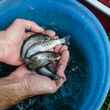

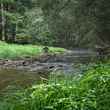

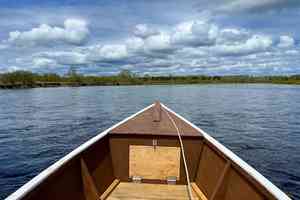



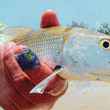
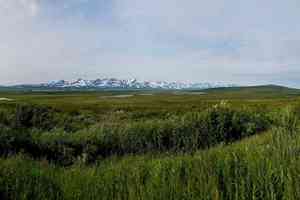



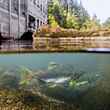



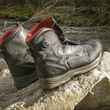




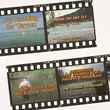
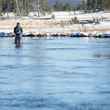
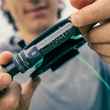
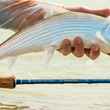
![Meagan Cook with CeCe [left] and her mother Birdie [right], the dog that started it all (Images courtesy: Meagan Cook). meagan cook dog rescue](https://www.hatchmag.com/sites/default/files/styles/gallery_thumbnail/public/field/image/meagancook.jpg?itok=3StbM11l)
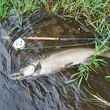
Comments
Kevin Brugman replied on Permalink
Maybe one of the most important tips. Don't be a trout snob! Remember there are other fish than trout. You can learn a lot from fishing for big panfish. (They did not get big being dumb.) For 80% of fly fishers, warm water and salt water fisheries are lots closer than trout streams. That means you can fish a whole lot more for a whole lot less.
steve replied on Permalink
Great tips - what about twohanded flyfishing
Anonymous replied on Permalink
This is the best advice for all anglers -- poor or rich, experienced or newbies. There is a fair amount of fly fishing B.S. out there, and there is an astounding number of knuckleheads who believe that success on guided fly fishing trips equals excellence as an angler. It is far, far better to fish two or four or five days a week on your home water, even if each trip is only a couple of hours -- than to fish once a month on famous water.
Glenn R. Dotter replied on Permalink
Finally a sane article on flyfishing. Ive been doing it for 60+years. I could afford that $1000 rod, those $800 waders, and those $300 sunglasses, but I absolutely refuse to buy into the marketing stuff that tries to convince you that you cant be a good flyfisherman if you dont have it.
There is Very little difference between that $1000 rod and a $3or 400 rod. Mostly it is astetics and fancy marketing words.
When it comes to casting. The writer is right but understand unlrss you are fishing dry flies, you are really just flipping and mending most of us are fishing water no more than 50feet across so yo dont have to be able to cast even that far.90% of my casting is done between 10 and 30 feet and 30 feet is rare.
Learn to tye. It is a great hobbly and you will become a better flyfisherperson.
You dont have to look like you just left an Orvis dealer to be a good flyfisher.There is a multitude of gear and stuuf that will serve you for years at a fraction of the cost. A pair of $200 waders will last you a long time if you take care of them. I could go on and on, but this aticle was one of the best ever on Hatch!
Rick B. replied on Permalink
Spot on advice. Especially on dry fly fishing and tying flies. Sadly, few fly anglers will take it to heart.
Hogarth replied on Permalink
There is a plethora of high-end fishing gear you can buy, but much of it brings more status than increased functionality. Nothing wrong with that if you love the sport, have the money, and want to indulge in the best, but there is a lot of high value equipment out there that won’t break the bank. A $25 rubber net lands fish just as well as the $150 one; a $6 nipper cuts tippet as well as a $100 one; a $10 needle nose crimps as well as the $250 one; an existing daypack holds as much gear as a $200 one (albeit without the benefit of being waterproof), etc.
I suggest that beginners acquire a good rod (like the one you suggest), a quality fly line, and a functional reel. Then perhaps focus on waders and boots. Other than buying decent flies and tippet, one can then do a lot of fly fishing with tools and items from around the house.
Even if you’re on the Ranch on the Henry’s Fork, no one will be able to tell you’re using value gear — and if they can, then you’re fishing too close to them.
Glenn R. Dotter replied on Permalink
Spot on. I dont look like I just stepped out of the Simms, Sage, or Patagonia shop. Butafter 60+ years of flyfishing, I think I know a few things about the game
Pages